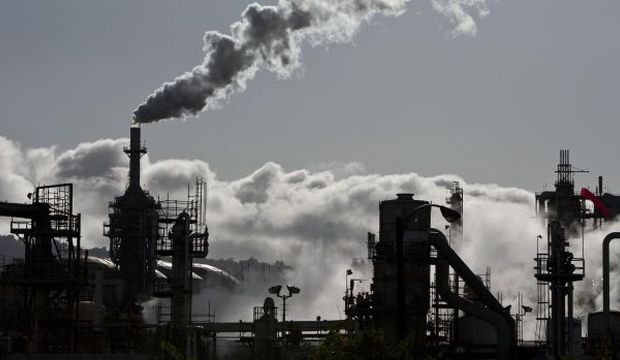Erbil and Beirut, Asharq Al-Awsat—Kurdish security forces in northern Iraq claim to have made major inroads into shutting down oil smuggling by militants from the Islamic State of Iraq and Syria (ISIS).
Major Farouk Ahmed, an officer in the Kurdistan Regional Government’s security service, the Asayiş, said on Tuesday that the force had cracked down on smuggling operations in Iraq’s Salah El-Din governorate.
He told Asharq Al-Awsat: “In the last few weeks, we have imposed full control on all roads in Tuz Khurmato that were used by Kurdish smugglers to transport illegally purchased crude oil in the Al-Adhim and Hamrin areas of the region.”
“Our information showed that ISIS continued to extract oil in areas between Bayji and the Hamrin mountains after damaging oil pipes and loading dozens of oil tanker trucks,” he said. “We have taken control of main roads and dealers cannot smuggle oil through Tuz Khurmato; however, we have information that smugglers use other routes to smuggle the oil at night.”
Major Ahmed claimed that as a result of Asayiş efforts, the number of tankers carrying smuggled oil “has been reduced from 60 to 10 per day.”
Meanwhile, sources in Tuz Khurmato told Asharq Al-Awsat that Kurdish and Arab dealers were continuing to make dozens of deals daily, buying oil from ISIS and smuggling it to other areas.
A Kurdish oil dealer who trades with ISIS speaking on the condition of anonymity told Asharq Al-Awsat that he had been buying oil from ISIS to smuggle into Iraqi Kurdistan since the organization took control of oil pipelines near the Bayji and Hamrin mountains in June.
He added: “At the start, we bought this oil openly and transported it along the Kader Karam–Suleimaniyah road, and sometimes to Erbil, and business was good at the time. I alone was buying around 10 oil-tanker [shipments] a day at a cost of 10–12 million Iraqi dinars [8,500–10,300 US dollars] from ISIS, and sold it on to other traders.”
“We were recently arrested by security forces and released on the condition that we did not buy ISIS oil and smuggle it, but as there is no other work, I started to trade again secretly,” he said.
He said that the security crackdowns had not led to a rise in prices of smuggled oil, but the number of shipments had been reduced to around 12 per day.
ISIS took control of large areas of northern Iraq, including at least four oil fields, in June. In addition, the organization controls Syrian oil fields in the governorates of Deir Ezzor and Raqqa, their stronghold in northern Syria.
Opposition activists and experts said the extremist organization was using oil revenue to fund its military attacks on the Syrian and Iraqi governments and Syrian opposition forces.
Speaking to Asharq Al-Awsat last week, the head of the Syrian Observatory for Human Rights, Rami Abdulrahman, said: “Syrian oil was smuggled to Turkey and Iraq,” and that “transporting oil to Iraq has become easy because ISIS fighters are present on both sides of the border. It is transported by smugglers and local dealers to Turkey.”
He said he did not expect the smuggling activity to take place “without the prior knowledge of the Turkish authorities,” or in other words, “the issue was facilitated by the Turkish authorities.”
Meanwhile, Syrian economists said there were “secret agreements” signed between the Syrian government and ISIS. The director of the Syria Business Forum, Dr. Osama Kadi, told Asharq Al-Awsat that “there is a direct relationship between the regime and ISIS and bilateral oil agreements exist between the two, to cover the regime’s needs for oil supplies.”
Kadi said he expected the agreements between the two sides to help them survive and bolster their presence during this crisis, and help them fund their military operations. He said extremists’ control of oil resources would enable them to continue to fight the moderate forces and prolong the crisis.
His claims could not be verified.
The UN Security Council issued a statement on Monday warning that any individual caught trading oil with ISIS or the Al-Nusra Front faced sanctions. Both organizations are blacklisted terrorist groups.
In the statement, the Council said it “notes with concern that any oilfields and related infrastructure controlled by terrorist organizations could generate material income for terrorists, which would support their recruitment efforts, including of foreign terrorist fighters, and strengthen their operational capability to organize and carry out terrorist attacks.”

